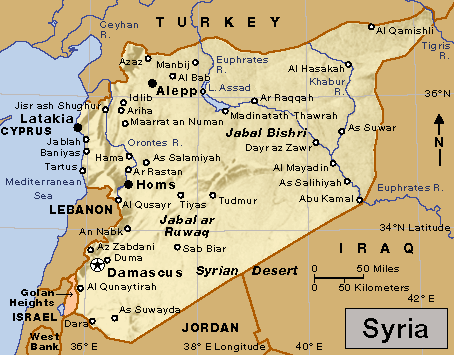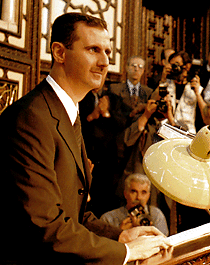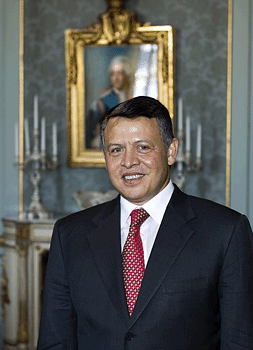NATO and President Obama Issue Grave Warnings to Syria
Tuesday, December 4th, 2012December 4, 2012
NATO Secretary General Anders Fogh Rasmussen issued a warning today to the government of Syria not to use chemical weapons against its own people: “If anybody resorts to these terrible weapons, then I would expect an immediate reaction from the international community,” he declared. His warning came on the heals of a similar declaration yesterday by U.S. President Barack Obama: “The world is watching. The use of chemical weapons is and would be totally unacceptable,” noted the president in a speech at the National Defense University. NATO foreign ministers, meeting today in Brussels, are expected to approve the deployment of Patriot antimissile batteries to Turkey, a move designed to defend Turkey’s border with Syria.

NATO foreign ministers are expected to approve a plan to station Patriot antimissile batteries in Turkey. (World Book map; map data © MapQuest.com, Inc.)
Syrian government forces continue to bombard the southern suburbs of Damascus with artillery and airstrikes in an offensive designed to seal off the city and maintain control of the international airport. Rebels have gained control of strategic military bases and arsenals, giving them access to ground-to-air missiles that has forced the government to periodically shut down the airport. The head of the Arab League, Nabil al-Araby, has stated that he believes the government of Bashar al-Assad could fall at any time, and the United Nations announced today that it is withdrawing all nonessential staff from Syria.
Additional World Book articles:
- Arab Spring
- Middle East: From Fall to Spring (a Special Report)
- Syria 2011 (a Back in Time article)




